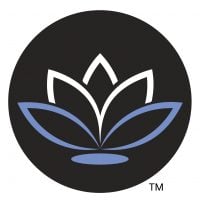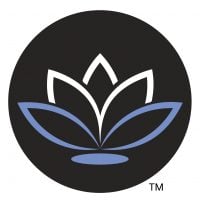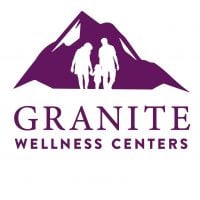Tahoe Turning Point
Drug Rehab Center in South Lake Tahoe, California
Tahoe Turning Point is a state-licensed, CARF and SAMHSA-accredited addiction treatment facility in South Lake Tahoe, California, offering comprehensive, personalized treatment plans for those with substance use or dual diagnosis disorders, as well as aftercare and private health insurance.
About This South Lake Tahoe, CA Facility
Tahoe Turning Point is an Addiction Treatment Facility located in South Lake Tahoe, California. With certifications from CARF (Commission on Accreditation of Rehabilitation Facilities), SAMHSA (Substance Abuse and Mental Health Services Administration), and a State License, Tahoe Turning Point is a trusted and reliable choice for individuals seeking help with addiction and substance abuse. The facility offers various levels of care, including Aftercare Support, Outpatient, Dual-Diagnosis, Intensive Outpatient, and Sober-Living / Half-Way programs.
At Tahoe Turning Point, individuals struggling with alcoholism, opioid addiction, and dual diagnosis disorders find comprehensive and personalized treatment options. Through their Aftercare Support program, the facility ensures that individuals receive ongoing assistance and guidance even after completing their primary treatment. With outpatient services, clients benefit from flexible treatment schedules that allow them to continue with their daily responsibilities while receiving the necessary support. Tahoe Turning Point's dual-diagnosis program addresses the complex needs of individuals facing co-occurring mental health and substance abuse disorders. The intensive outpatient program offers a higher level of support and structure for individuals requiring more intensive treatment. Lastly, the facility provides sober-living and half-way house options, offering a safe and supportive environment for individuals in recovery.
Genders
Ages
Modality
Additional
Accreditations
State License
SAMHSA

CARF
The Commission on Accreditation of Rehabilitation Facilities (CARF) is a non-profit organization that specifically accredits rehab organizations. Founded in 1966, CARF's, mission is to help service providers like rehab facilities maintain high standards of care.
Conditions and Issues Treated
Opioid addiction involves addiction to legal or illegal opioids. It may happen very quickly with any opioid use. Sometimes within a matter of days. Opioid addiction is a known as a high-risk factor for future heroin addiction.
Opioid withdrawal can be extremely uncomfortable and lead the user to continue to use even if they want to quit. Stopping using an opioid requires careful medical observation. Sometimes the withdrawal can persist for many weeks, which can put the user at a high risk for relapse.
It is recommended to receive inpatient treatment and a medically supervised detox like those offered at Tahoe Turning Point in South Lake Tahoe, CA, CA, to manage the withdrawal process while learning lasting tools to maintain recovery. In some circumstances medications can be used to manage opioid addiction.
Substance use disorder falls under two categories: Alcohol or Drug Abuse and Drug Dependence. An individual suffering from a substance use disorder and mental health disorders is said to have a co-occurring disorder or a dual disorder. Individuals in South Lake Tahoe, CA with substance use disorders and mental health problems are said to suffer from a ‘dual diagnosis’.
The most frequently identified mental health issues found in individuals with substance use disorders include anxiety, depression, schizophrenia, and schizoaffective disorder.
Levels of Care Offered
This center offers a variety of custom treatment tailored to individual recovery. Currently available are Aftercare Support, Dual-Diagnosis, Intensive Outpatient, Outpatient, Sober-Living / Half-Way, with additional therapies available as listed below.
Intensive outpatient programs are an integral part of the continuum of care for people addicted to drugs and alcohol. Most intensive outpatient programs in South Lake Tahoe, CA comprise a 3-hour session three times a week. Usually, the intensity of these programs diminishes over time. These programs offer a range of services, including counselling, medical treatment, and monitoring alcohol and drug use. The programs are ideal for people who do not need treatment at an inpatient or residential facility and continue to need extended care and support.
Outpatient treatment is treatment that occurs when a patient is not checked into a rehab facility. The patient may show up for therapy sessions, go through detox and engage in other therapies to help them recover. However, they will do so while they live at home in California.
Outpatient therapy provided by Tahoe Turning Point is usually recommended as a follow up to inpatient therapy. It helps patients adapt to their normal lives after treatment. In some cases, it can also be an alternative to inpatient treatment. People may choose this route if they are unable to leave their jobs, children or if they don’t have the money for inpatient treatment. However, inpatient treatment is the best way to recover from addiction.
A sober living home functions as a bridge between the real world and an inpatient facility. Residents of an SLH in South Lake Tahoe, CA can come and go whenever they want. There are certain rules that residents have to follow, such as curfews and group meeting attendance. The SLH at Tahoe Turning Point provides freedom and structure to help readjust to life outside of rehab. It gives structure and accountability in life for staying motivated to abstain from substances.
Aftercare support involves the support given to a South Lake Tahoe, California patient after they complete treatment. It helps them adjust to normal life. It may include setting them up in a halfway house and enrolling them in programs like Narcotics Anonymous (NA) and Alcoholics Anonymous (AA). Tahoe Turning Point‘s patients may also be provided with career training to help them get back into the job force.
Tahoe Turning Point‘s Therapies & Programs
Individual therapy aims to identify the core issues that would have led the patient to substance abuse and address the root cause effectively. Patients find the therapist as a person who they can trust. It helps them to open up and discuss personal and sensitive issues, which they may not be comfortable discussing in a group.
Couples therapy is an approach wherein the patients and their partners are engaged together as a part of the treatment process. When a person becomes a victim of substance abuse, it affects the patient and the people around him, particularly his partner. Their relationship can become strained due to lack of communication, financial issues, loss of trust, lack of intimacy, and physical abuse in more severe cases.
Couples therapy addresses these issues and tries to rebuild the trust between the partners. The partner’s involvement in the process will result in greater chances of treatment success and sustained recovery.
Family therapy is a set of therapeutic approaches that assumes that the entire family is a system. It utilizes the strengths and resources of the family to help the patient refrain from resorting to substance abuse. It helps to repair relationships and improve communication between family members.
Group therapy happens at Tahoe Turning Point in a controlled group environment, as opposed to a one-on-one setting. It supports South Lake Tahoe, CA patients’ recovery by offering a sense of comfort and letting them know that they are not alone. Through shared conversations, patients also learn to develop faith and understanding and gain insight on their addictions.
Unresolved trauma is often a key reason why many patients resorted to substance abuse. Trauma therapy refers to treatment wherein specialist therapists help the patients to resolve the trauma that led the patients to substance abuse. The trauma could be physical abuse, sexual abuse, war, natural disasters, divorce, accident, loss of a loved one, etc. Thinking of these traumatic events causes emotional disturbances like anxiety, depression and results in addiction. If trauma is the primary cause of substance abuse, then both issues must be addressed. Otherwise, there is a risk of relapse. Trauma therapy also improves the cognitive functions and provides long term benefits.
Dialectical Behavior Therapy (DBT) is an improved version of Cognitive Behavioral Therapy (CBT). DBT is a treatment of choice for people suffering from self-harming behaviors characterized by cutting and suicidal thoughts or inclinations.
This treatment is developed to help individuals recognize their thought patterns, behaviors, and feelings. It has demonstrated its effectiveness for people that are finding it difficult to control their emotions and urges. Conditions such as obsessive-compulsive disorder and borderline personality disorder also benefit from DBT as it imparts individuals stress-management techniques and enhanced self-esteem so they can sustain their sobriety by reducing the impact of triggers and out-of-control emotions.
Cognitive behavioral therapy (CBT) is a way of addressing concerns through talking. It can be used in individual counseling sessions. Talking through issues with professionals at Tahoe Turning Point can identify sources of discomfort or unhealthy thoughts. It is a way of learning about yourself and your individual perceptions. CBT is a healthy way of addressing some behaviors which may be bringing unintended consequences in your life.
Rational Emotive Behavior Therapy (REBT) sees a person suffering from substance addiction to have illogical reasoning, counterproductive actions, and does not see things clearly. Due to this, REBT deals with cognition, images, and behavior extensively to rectify the client’s bad habits. REBT pushes an individual to become more reasonable and choose a life without the repercussions of addictions.
Patients at Tahoe Turning Point in South Lake Tahoe, CA learn how to self-soothe by conducting rational self-counseling. REBT provides their patients with the skill sets necessary in handling problems all by themselves, without seeking professional help. The process calls for practice, reiteration, and bolstering the new way of thinking being introduced to the patient.
Payment Options Accepted
For specific insurance or payment methods please contact us.
Is your insurance accepted?
Ask an expert, call (888) 674-0062
Additional Details
Specifics, location, and helpful extra information.
South Lake Tahoe, California 96150 Phone Number(530) 541-4594 Meta DetailsUpdated November 25, 2023
Staff Verified
Patient Reviews
There are no reviews yet. Be the first one to write one.
South Lake Tahoe, California Addiction Information
More than 3 million of California's citizens are addicted to illegal drugs. Almost 800,000 people use hard drugs, almost 5 million use marijuana, and another 2.1 million abuse alcohol every year. Other substance abuse issues such as binge drinking and teen drug use are also common. Many illegal drugs such as cocaine, heroin, methamphetamine, and marijuana are smuggled into the state from Mexico.
45% of drug users in South Lake Tahoe, CA reported using two or more drugs in the past year. Marijuana is the most commonly abused substance with 65% of users reporting past-year use. The number of deaths due to drug overdoses in the city has tripled since 1999. The most common type of treatment is inpatient treatment. This allows you to focus on your recovery without having to worry about everyday distractions.
Treatment in Nearby Cities
- Lompoc, CA (297.5 mi.)
- Lake Forest, CA (386.8 mi.)
- Rancho Cucamonga, CA (358.8 mi.)
- Morgan Hill, CA (153.7 mi.)
- Scotts Valley, CA (170.2 mi.)
Centers near Tahoe Turning Point
The facility name, logo and brand are the property and registered trademarks of Tahoe Turning Point, and are being used for identification and informational purposes only. Use of these names, logos and brands shall not imply endorsement. RehabNow.org is not affiliated with or sponsored by Tahoe Turning Point.







